.
.
New Short Fiction Award
Three times a year, we award a writer who submits, in our opinion, the best original, previously unpublished work.
Owen Duffy of Shaftsbury, Vermont is the winner of the 60th Jerry Jazz Musician New Short Fiction Award, announced and published for the first time on July 15, 2022.
.
.
___
.
.
photo via Dreamstime.com
.
Thrush
by Owen Duffy
.
…..The hungry grey January dawn. Old blue Valiant. Lincoln Tunnel and out of the city like a spit wad. Me still in my stage clothes, drinking vodka straight and she’s in the back seat, sick. Not yet sure where we’ve been or where we’re going. I’m the dirty motor oil in the car. Never changed, just topped off so it could go. She the prize fighter who lost their big bout, the limelight gone sour. And there before us the searing light of another dawn, dripping across the road like acid, blinding white, atomic.
…..I lower the sun visor and the highway turns to a strip of celluloid. Skeleton city skyline. Wet concrete and steam. I see only her trembling hand in the mirror, dangling from beneath her coat. She makes no sound now. When she sings she splits me open, grips my spine. When she sings I see things impossible.
…..She fell onstage last night in the city. Club owner wouldn’t pay. They threw shit at us and someone called an ambulance.
…..“God, don’t do that,” I said. “Never call an ambulance.”
…..“Are you her doctor?” he said.
…..I gave her some pills and got her on her feet. “She’ll be fine.”
…..“Beatniks,” he muttered.
.
…..The Turnpike, land stripped of its flesh. We drive along silver rivers, a swirling litter stew. Incinerators fume. Banners say VOTE FOR GOLDWATER and KENT FILTERS BEST.
…..My lucky playing card is tucked in the sun visor. I reach for it and the car jumps a lane. A horn blares. I slip the card in my pocket, light the longest butt in the ashtray and thumb the radio dial.
…..“Is there anything that doesn’t know hunger?” she murmurs from under her coat. She’s awakened without revealing any more than her lips. “What I’d give not to know hunger.”
…..“A plant, maybe.”
…..A jeweled hand emerges and picks the butt from my fingers. “Plants need sun and water. Soil.” She pulls back her coat and her eyes emerge. Dark. Bottomless. “You’d be a pretty plant,” she says. “But a poisonous one.”
…..I watch the planes landing overhead. Tailfins shining, propellers a blur. What I’d give to be on one of those, I think, draining my cup. The gig we’re headed to suddenly seems very far away.
…..“Where would you fly?” she asks, as the shadows lumber above us, “if you didn’t have me?”
…..“Hell.”
…..“At least it would be warm,” she laughs and covers her face again, then murmurs: “How long do we have?”
…..“Not very long.”
…..It’s quiet a moment.
…..“You alive back there?”
…..“Barely,” she sighs.
.
…..Newark filling station. A bluster of fumes and trash. I pull out my wallet and my shit flies everywhere: Matches, coins, pills. Hold it together. I bend to pick up my lucky card and the attendant reaches for it.
…..“Don’t touch it!”
…..He holds up his hands. “Just trying to help, Bub.”
…..The wind shoots it across the icy lot and I nearly break my neck chasing it down. It blows into some reeds and tumbles into a creek. Gone.
…..“What the hell are you doing?” he yells. He’s standing high on the bank as I reach into the water. “I got decks of those inside!”
…..There, watching the card float away, everything is quiet. Cars roll noiselessly along the highway. A train burrows beneath the unending graveyard beyond. Birds strung out on telephone wires, a melody on a scale.
…..I climb the slope to the station and spill the pill bottle into my hand. I chew some, slip it in my pocket.
…..“Where’s your phone?” I say to the attendant, already filling up another car.
…..“Where you goin’?” she groans from the back seat.
…..“I’m going…” I say, gazing up at a sky gone white. Snow is falling softly on the highways, the city, the rivers, the ocean. It swirls at my feet, catches in my eyelashes. Suddenly, magnificently, the world is hushed.
…..I look at my watch.
…..We’re not going to make it on time.
.
…..The dime clinks home, the receiver cold and greasy. A noise of connecting wires, miles of cable hum. The voice on the other end is distant, hollow, and he’s saying the same thing they always do, but as a plane rumbles over, the phone clicks dead.
…..I follow my footprints back to the car.
…..“I thought you was going for a swim back there,” the attendant says.
…..“What do I owe you?”
…..“Valiant,” he sings, looking at the salt-crusted car. “Twice the car for half the price.” He turns and looks at the pump. “That’ll be two-ten.”
…..As I hand him the money, he’s peering into the back seat.
…..“She okay?”
…..“Is anybody?”
.
…..It’s snowing hard as I pull back on the Turnpike and by then I have the radio blaring and it’s playing one of her old songs, and when I turn around she’s still hiding under her coat, but I know she’s listening, because her toe is tapping against the door.
…..When her song ends, Marcie Blane sings her hit, “Bobby’s Girl.” A groan comes from the back seat and I snap off the radio and hum the melody I saw on the telephone lines.
…..“Pretty,” she murmurs. “Yours?”
…..Not entirely.
…..“I could come up with some words,” she says, flashing her eyes.
…..Another plane blasts overhead, lower than it should be, a shadow in the snow. When I look in the mirror I notice a gold car has followed us from the service station. Its wipers beat double-time as we press on at forty-miles an hour.
…..GREETINGS FROM MIAMI, FLORIDA, a sunny billboard reads.
…..Cars are slowing to a crawl. Tires cut deep grooves in the slush. Exits pass for the Jersey Shore.
…..We’re almost out of time.
.
…..Jersey Shore. Nearly two years before. I was just a kid, sitting on an empty stage in my coat and tie, in the ballroom of the old Windsor Hotel with all the windows closed and the smell of spilled drinks and baked cod. I had an hour before my audition and to burn time I played the piano on the bandstand. After a while I noticed a short guy standing there in a sharkskin jacket and shades.
…..“You that kid trying out for the combo tonight?”
…..“That’s right.”
…..“Well, quit playing that thing, it don’t belong to you.”
…..“Oh let him, Sergio,” she said, appearing suddenly, her customary white cape draped over her shoulders. “It sounds good to me.”
…..She sat beside me on bench, stuck out her hand and introduced herself, as if I didn’t know. She was the only girl I knew who stuck her hand out right away. I learned that it was to keep men from hugging her, holding on too long, too tight.
…..“I’m Bobbi Blue,” she said, smiling. Her face was bright then. Open.
…..Something about her voice appealed to me. I spent most of the first show I did with her trying to figure out where I’d heard it, until at last I remembered, but by then there were record men all around her. The suits. Sergio peeled a five-dollar bill off a roll and tossed it on the piano. He was young but had eyes that looked like he’d stolen them off a dead man.
…..“Get that mop cut before the show tonight,” he said, walking off with the others.
.
…..I can still see her walk onstage that night. Hear the applause. See the smoke rising over the crowd. She’s a silhouette as she steps from behind the curtain, enters the spotlight and strikes a pose. White dress, guitar slung over her neck, its long cord curling across the stage.
…..Just one moment…she hums softly into the mic…of your time…and the room erupts. She glances back at me and winks. The spotlight barely reaches my toes. I’m hidden behind the piano while her drummer, Willie, pounds out the beat, cannon shots over the crowd.
…..Her voice sparkles. It rises, wilts, and cries. With every chorus the audience grows louder. Through the cheers I can no longer hear the music, although I hit the keys harder than I ever have before. This was her latest hit, the one she’d lip-synched on American Bandstand that spring, and the place is stomping.
…..She swings with the beat, hammering out chords, and they jump across the stage like sparks, and we’re grooving behind her, playing like I’ve never played. Willie sat there shuffling along like it wasn’t shit. The bassist reaching back to turn up his amp to be heard over the noise.
…..I watched her onstage the whole night. Just as I did at every show that followed that summer. A string of one-nighters along the coast, recording studio dates, late night jam sessions, long-distance phone calls where we shared songs, and more.
…..The song ends and she lifts a hand to quiet the crowd. She introduces the next number and as we strike the first notes, everyone starts singing along. I stare out at the sea of them. Glassy-eyed, transfixed. It was like she’d opened the molten core of the earth from which she’d sprung, and we stood in contemplation before we were pitched forward into it.
…..When she finally exits the stage, the suits from her record label are there along with her disk jockey husband, WCAO’s Jim Beauregard, a surprise visit from Baltimore. She runs into his arms and just like that, she’s whisked away.
…..The curtain falls and the stage goes dark; Willie lights a smoke and whispers, “Man, that was heavy.”
…..And then he too is gone, an arm thrown around some girl in the wings and there’s other girls there, waiting in the alley. I watch Bobbi climb in a black Caddy with Jim, laughing on his arm, then I wander back to the stage.
…..For a moment, I see her standing at the mic, facing the empty room, and my heart lifts to think she’s come back, but then she turns fluid in my memories of the music and that summer, when it seemed we had it all; and when I look up again, there is only the empty stage, covered in dust from many forgotten years.
.
…..Bobbi didn’t handle money, didn’t drive her own car, and never touched her own luggage. She drank J&B, smoked Salem’s. She liked Chuck Willis, Billie Holiday, and Johnny Ace. And she never lost her cool. Not even one August night that summer, outside her hometown in Virginia, when our tire blew with a bang and woke her up.
…..She lit a cigarette while I pulled her luggage from the trunk and dragged out the spare. I hadn’t seen another car in miles and wouldn’t for hours. The road was dark and silent, the only sound our radio and the shuffling of tools.
…..She carried a little gun in her purse. I knew it wasn’t far out of reach, out on the road with a man she barely knew.
…..I heard a click and she leaned out and shined a flashlight at me. “That wasn’t me,” she said, answering a question I’d asked just before she drifted off. “I don’t care what you think.”
…..“Sure it was,” I said, recalling the televised talent contest I’d watched years before. “I knew it was you the first time I heard you sing. Same girl. A bit younger. Same voice.”
…..Dark roads at three in the morning make people talk. And we had lots to say. Weeks before I’d been just a fill in piano player, and now I was driving her places. We’d gotten to know each other, or, to put it in her words, the shit had been cut.
…..She told me to forget it, but I couldn’t. See, she had me pretty well convinced then. Had us all convinced. That she was a somebody. And maybe she was.
…..She sat listening to Nat Cole with her eyes closed, head resting on her arm. “What makes you think you know who I am, anyway?”
…..“You got something in your voice. Something that sticks.”
…..She smiled and rolled eyes at me. “Just fix the tire, piano player. When we get back to the city, I’ll hire me someone who isn’t so nosy.”
…..“You’re better than those songs they make you sing. You sing every bit as good as that guy.” I nodded towards the radio as I worked the lug nuts off the wheel. “Shine that light over here, would you?”
…..The beam of light reluctantly moved towards the tire.
…..“A person could disappear out here,” she sighed, gazing into the pines. She had a thing about vanishing. Was always talking about it. Like she was a bug or something, could just fly off.
…..But we didn’t know each other too well yet. Besides making a pit stop at her childhood home, where her father gave her a white Fender guitar, all I knew was that her husband was far away that night. Somewhere outside of Baltimore she’d started to talk. Maybe it was the booze mixed with the vitamins they gave her. Maybe it was the darkness. Maybe it was because they weren’t vitamins and we both knew it.
…..“Maybe I’ll leave you out here,” I said, throwing the tools in the trunk and slamming it closed. “You and that voice.”
…..“You like me too much for that,” she said, clicking off the flashlight as I got in. “I see the way you look at me sometimes.”
…..I studied her in the rear view as I started the car. “How am I looking at you now?”
…..She laughed dryly and looked at the moon over the road, silver, crepuscular. “You don’t know shit, Kid.”
…..She always called me that although she wasn’t much older than me. But she was already puffy from the booze. Without her makeup and costumes, she looked like a prize bird plucked of its feathers.
…..“Well,” I said, pulling back onto the road, “I like you enough to say I think you could do better. That’s all.”
…..“Thanks, Kid.” She screwed the cap off a liquor bottle and I heard it hit the rim of a glass. “But I’ve seen the girls you go with. You’re not into women like me.”
…..“You,” I said, adjusting the mirror so she could see my eyes, “don’t know shit.”
…..She laughed. That thick-throated, high laugh that hinted at that voice. A girl’s voice in a woman’s body.
…..She took a sip of her drink and handed it to me. I saw her eyes again, gleaming in the mirror. “Prove it.”
…..“What about Jim?”
…..She laughed again. “Come on, lover boy, you think that man is true to me?”
…..I climbed in the back seat and pulled off my jacket. God she was warm inside. And she was loud. I knew she would be. Singers, I was to find, always are.
…..“Here,” she said after, handing me a small white pill. “I’m gonna nod off.”
…..“What is it?” I asked, but she’d already disappeared. Wasn’t asleep, but gone, somewhere.
…..Delaware came and went and she slept, and the radio went quiet in the night. Then it was just the raging wind, and all the songs we’d played that night to a dark, crowded room.
…..The pill kicked in as the sun rose over industrial wastelands, across land hallow and scraped, and my hair blew out and flames wept over the Valiant’s hood and when I saw my reflection I was just bones, singing a song no one had ever sung.
.
…..On that trip we stopped at a radio station in Philly where she knew the DJ. An oily man in a thin sport shirt. He played her new record to himself during a station break. Said it was shit. And it was. Sounded like it had been written by a middle-aged suit and recorded inside a water tank.
…..She reached into her purse and dropped an envelope of cash on his desk. A week of gigs.
…..He looked at it and shook his head. “I don’t want your Payola.”
…..“Then what do you want?”
…..He brushed back his greasy hair and stared at me.
…..She looked at me, batted her eyes, and walked out.
…..I wasn’t far behind.
…..“What did you think I was gonna do in there?”
…..She turned and squared me up. “I’ve done a lot worse. You want this job, you go back in there and do what you got to do. I know for a fact you’re easy.”
…..I stopped. “Maybe I don’t want this job that bad.”
…..She stepped forward. “My label sunk ten grand into this new record. It’s got to get some play or I’m sunk too.”
…..I sighed. “Give me your purse.”
…..“Why?”
…..“Because I’m going to need your money.”
…..She stood back a moment, then handed it over.
.
…..She was in the front seat when I came out. I tossed her money at her and dropped her gun and purse on the seat between us.
…..“What did you do?” she said, raising an eyebrow.
…..I turned so I was looking dead in her eyes.
…..“What,” she said, crossing her arms, “did you do, Kid?”
…..“I told him he’d be sorry. That you’re going to be the biggest thing since Marcie Blane.”
…..She laughed and smacked the dash.
…..“You can keep your job, Kid. Maybe you aren’t so bad after all.”
.
…..He didn’t play her song. No one would. What had come so easy slipped away just as fast. Crowds grew sparse until the spring when we returned to the Windsor Hotel to play to a packed house. They loved her there even though she’d been off the charts for nearly a year. A lifetime, the suits reminded her.
…..It was a beginning of summer regalia. She did the same set I’d seen her do over a hundred times. But that night was different. Three encores. They wouldn’t let her leave.
…..Standing in the spotlight, she looked lit from the inside. She sang with every nerve, every cell, and at the end the kids rushed the stage, reaching out, not just to be touched, but as if to be sanctified.
.
…..After the show I got very drunk in the lounge. Sticky oil paintings of fishing boats lined the walls. One of a girl in a petticoat gripping a flower. Somewhere far off I heard a shriek, neither laughter nor scream, but thought nothing of it. Then came the smell of burning, and the place started to fill with smoke.
…..Lying there in the street, after trying reach her room, I couldn’t breathe. And as great unfurling waves of ember swirled above us into the sky, the Atlantic pounding away at the surf, I didn’t hear the sirens, couldn’t hear the shouting. Just the sound of fire.
…..It began to rain then. A strange rain. The sky like the torn open belly of a mother maggot and all the baby maggots began to fall with a soft ticking sound, all mealy and wormy, and there were so many of them, and I smiled as they slithered and fell and carried us away.
.
…..Willie, her drummer, came to see me in the hospital. I was so pumped full of heroin that he looked like a paper cut out of a man. Empty hole for a mouth. He told me she was one of the dead.
…..He said he could get me session work up at Beltone Studios if I wanted it.
…..“Is that why you came?” I managed.
…..He leaned close to the bed and gripped my arm. “Kid,” he whispered, “get scarce when you get out, you dig? Don’t go anywhere they know to find you. They had a hundred-thousand-dollar life insurance policy on her. And they know you ain’t dumb. But act like you are. Got it?”
.
…..Her Valiant was still parked beside the ruins of the hotel when I got out, covered in ash. I opened the trunk and there was the guitar her dad had given her.
…..I drove to a lake in the pines and slept parked in the woods. Ate sandwiches from a gas station. Her face was in the papers: Thrush Dies in Fire. Even a photo of her on Teen Screen standing next to a teen idol who couldn’t sing. She would’ve hated it.
…..I drove to my aunt’s in Asbury Park and walked the boardwalk for miles. I went to the fun house to try and forget. But every time I opened the trunk, there was her guitar.
…..I drove to a pawn shop and gazed at the rows of instruments hanging in the window. She’d understand. Just as I was getting ready to walk inside, I thought of her father in his faded clothes, shyly giving it to her after dinner that one night.
…..I drove towards the highway, headed south.
…..A wiry kid with scuffed sneakers and a ratty cardigan was standing by the on-ramp. An overexposed Kodachrome with his long, red hair. He offered me a cigarette as he leaned in my window.
…..“You got cash to split gas?”
…..“Sure thing,” he said, lighting it for me.
…..On my way to Virginia.
…..“That sounds fine,” he said, and climbed in.
…..“Where you from?”
…..He didn’t answer. There inside the car, he turned jittery, like he couldn’t wait to get out. His nails were chewed, dirty. Opaque blue eyes that fixed on nothing. He puffed his cigarette and a long ash crumbled in his lap and he didn’t brush it away.
…..I stopped for gas outside Philly and asked him for his share.
…..“I guess,” he said, still looking out the window, “I don’t have any money after all.”
…..“Then get lost,” I said, and he grabbed his bag and slid out of the car.
…..I went in for smokes and watched him out the window, standing there with his gunny sack and his thumb out. He got in an Impala headed south. When I came out the trunk was popped and the guitar case was open.
…..I caught up to the Impala and forced it to the shoulder. The man sped away and the kid ran off and I chased him into the woods and choked him until I ran out of breath. All I could think of him was that DJ in Philly, how when I went back into the studio he leered at me and shut the blinds and did what he wanted and I could still feel him breathing on my neck, the smell of hair oil and sweat.
…..I looked down at the bruises on the kid’s neck where my hands had been, and when I pulled her guitar from his sack his eyes stared up at me, an expression on his face like he was seeing God.
.
…..Virginia. Her folks’ house was dark when I arrived near midnight. A patrol car was following me and it turned down her street with its searchlight going. I snuck around back and found an open window, thinking I’d have to slip the guitar in and leave. As I pushed it inside, a light flicked on. A figure was sitting on the bed in a pink night dress, aiming a little gun at me.
…..“Who’s that?” the figure said, clicking back the hammer.
…..I stood there, staring into Bobbi’s eyes.
…..“Are you real?” I asked.
…..The figure nodded slowly, aiming down the sights: “Are you?”
.
…..There are moments where I know this can’t be true, that she is something not of this world, but then she speaks, or touches me, or pulls me to her and I am afraid what will happen if I ask even the simplest thing.
…..And so here we are on that long bone highway, heading south, where somewhere in Virginia the radio goes dead and to pass the time she reads to me from a newspaper about how an airliner crashed the night before in the East River.
…..“I’m sure glad we aren’t flying,” she says, stretching across the front seat with her head on my lap.
…..I look down at her. She smiles up at me.
…..We’d just finished the gig at a lounge below a city street, an old place she used to sing before she was anybody, where they remembered her only by her voice. Dark faces would request a standard and she’d sing it like it’s all that mattered, ever would matter, lips pressed to the mic, bent over, as if it was something she was delivering, as if what came from her shot from some hot spring and it was all she could do to keep it inside.
…..As she sang she looked at each of us, and maybe you’d tried all your life to be cool, distant, but she took hold of something in you, and with her you began to burn, and before you knew it you were gone too.
…..“What now?” I say.
…..“Let’s don’t stop. Take me someplace warm.”
…..“Miami.”
…..“Yeah,” she says dreamily, her eyes gone to that place they do when she’s really flying. “Miami.”
…..“Sure thing,” I start to say, but there’s a loud bang and the car shudders to the shoulder in a twirl of dust. I climb out and shine the flashlight on the cheap re-tread, its steel belt pulled out like a tongue.
…..As I open the trunk, a car comes slowly winding down the road. I know what it is before it even appears. I watch its headlights slatted by the pines, its radio echoing through the forest, playing all the songs we used to sing in those silver ribboned days, when the world was soft and had no edges.
…..Bobbi stands beside me as the gold car comes to a stop in the road and sits there a moment, idling. She squeezes my hand as a door opens and a swath of warm light spills out.
…..We look at one another, and without a word, she pulls her guitar from the trunk and walks slowly towards the car, a kinescope in the headlights.
…..“Who is that?” I say, although I think I know.
…..“This is my ride,” she says when she reaches the car. She turns and leans on the door and shouts over the engine: “We had something there for a while, didn’t we, Kid?”
…..She smiles at me and looks in the car a moment before slipping inside. The door closes, the motor revs, and as they pull slowly by, something falls out the driver’s window. As the taillights fade, it flutters in the road, twirling beneath the moon.
…..I climb in the Valiant and sit there staring at my lucky playing card. I see her clothes, her pill bottles. Her newspaper on the seat with a picture of a lone survivor being pulled from the river. I stare at the woman a long time, soaking wet and wrapped in a sheet, surrounded by police and newsmen. She looks, impossibly, like Bobbi.
…..I sit there a long time, until the sun comes up, maybe longer, feeling that I too have been flung into an icy river, the pitiful worthlessness of my condition laid bare, as I cling to the wreckage so as to not be swept away with the putrid fuel, to never be found except by the fish and the gulls and the horrible crawling things, to explain why I had lived at all.
.
.
___
.
.
photo by Ella Duffy

Owen Duffy’s fiction has appeared in Hawai’i Review, wigleaf, Passages North, and New South, among others. He holds an MFA from Rutgers-Newark and has published two novels with Livingston Press: The Artichoke Queen, and One Summer on Cutthroat Lake. He lives with his family in Vermont.
.
.
Click here to read Short Fiction Contest #59: “His Second Instrument” by Dave Wakely
.
.
.
.




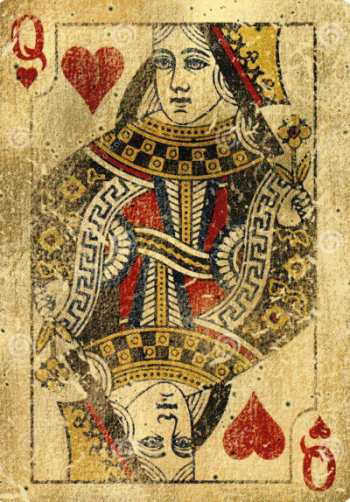



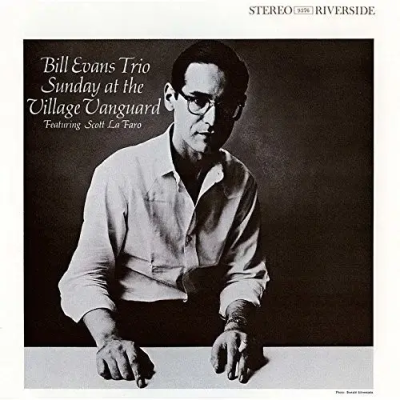

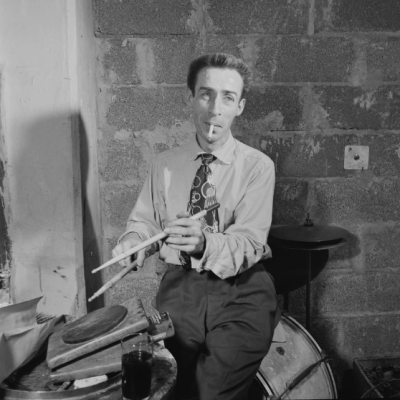


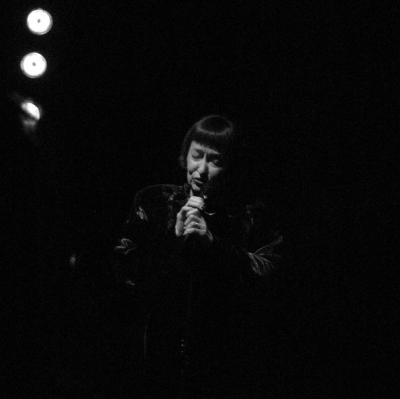




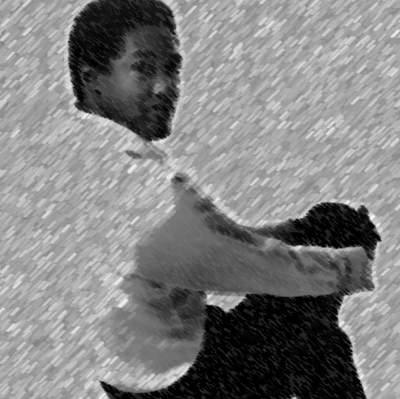

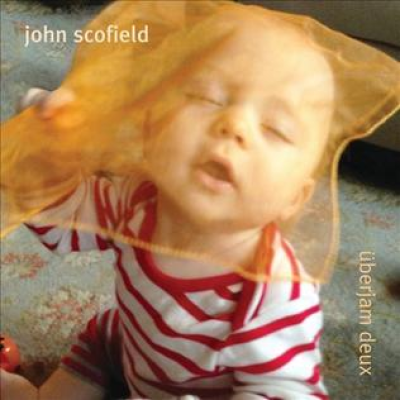
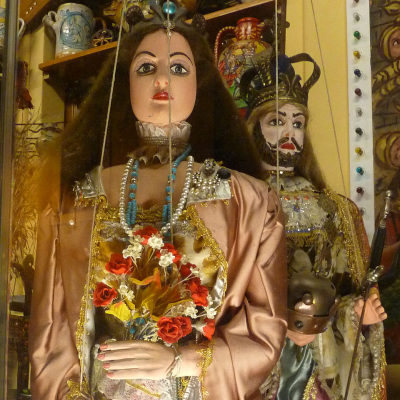




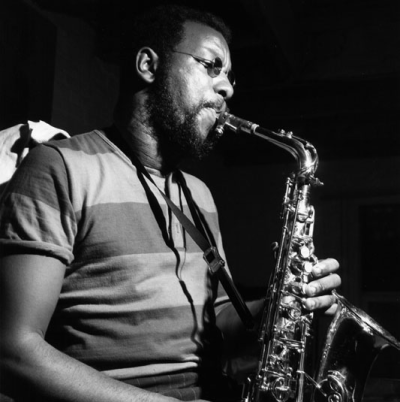

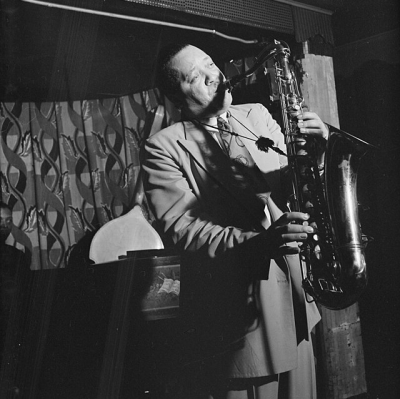

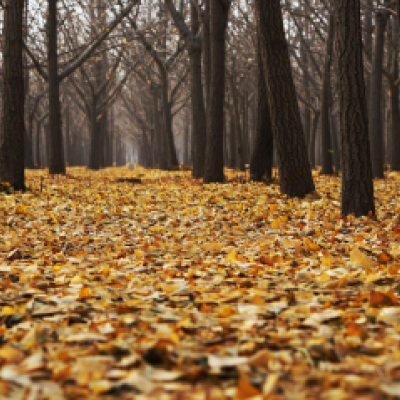


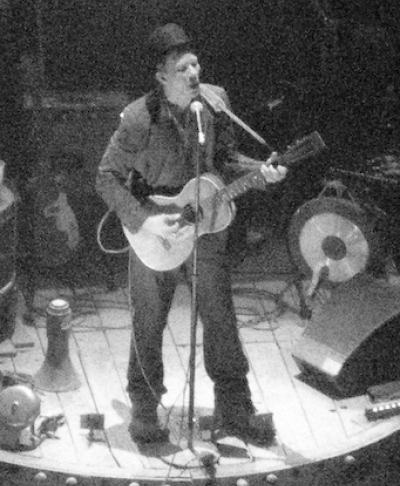









Let’s start out with WOW. This is my kind of story. Every nerve, fiber , and all my senses are awake and tingling. Give me more
WHAT A WILD RIDE! New Jersey, Delaware, Virginia and the happenings in the back and front seat of the Falcon.
Congratulations Owen